Exciting News
We are thrilled to announce today that you can now download our new AE app on your phone! We have been working hard behind the scenes to make sure our app is user friendly and brings you all the info you need with the touch of a button (or two).
Reasons to download the AE app:
- Pray: We have added the prayer points from our quarterly prayer diary to the app. This means you can simply click on the “pray” button and it will give you the prayer point for today.
- Read: You can read the Bible right here on the app. You will also find our newsletters and Harambee articles with the touch of a button.
- Watch: All of our latest videos, mission preparation and interviews with the African team, right at your fingertips.
- Give: No more looking for our phone number or trying to find a donation slip to give through the mail. You simply click on the “Give” button to donate through the app OR follow a few easy steps to set up text-to-give, which means you can donate by sending a text (simply text “GIVE” to 0480 093 514 to setup your personal Tithe.ly account today)!
Our previous app will become unavailable soon, so make sure to download our new app by clicking on the following link: DOWNLOAD THE AE APP
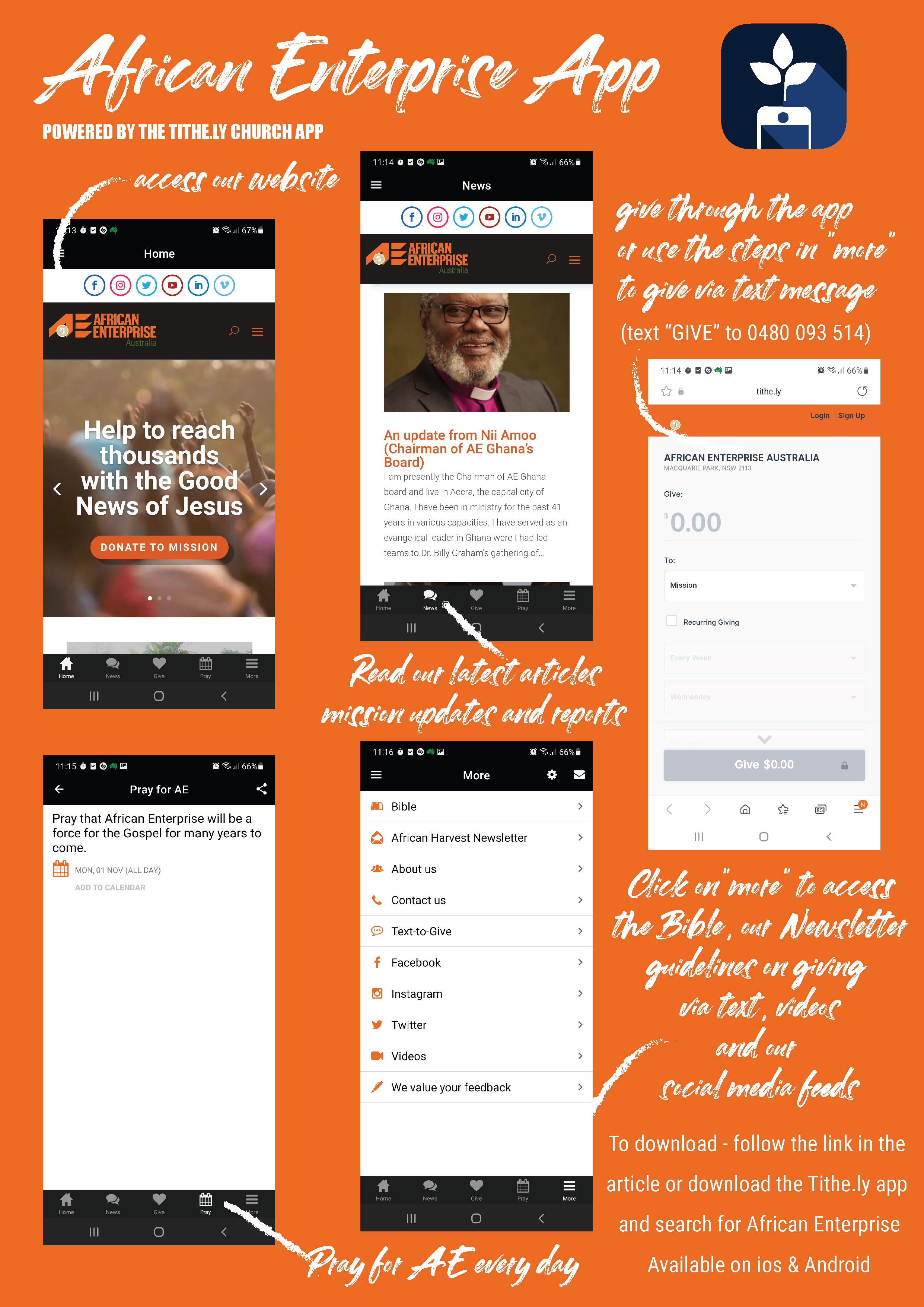
My association with African Enterprise began after my twelve years of service with CMS in Tanzania and the Australian home base. Back again in parish ministry I met with people who had become very committed to a new kind of African ministry called African Enterprise. I joined their Board and in due course became it’s Chairman and later International Chairman. I think that in that time I learned these four important things about AE.
First, it is indigenous i.e. it sprang up in Africa to be operated by Africans who minister to their own people in their own unique and special style. My connection with African Enterprise began sometime after my 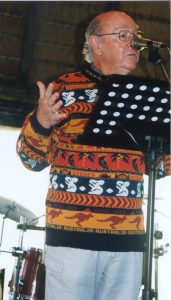 experience as a CMS missionary in Tanzania. Back in a Sydney parish again I met some people who were keen on this new kind of African mission which had begun to have a base in Australia. An old friend, Dr Paul White, was the Australian Chairman and I was soon invited to join AE’s local board. In due course this new connection took me to Africa, to AE’s people-on-the-ground and eventually to my Chairmanship of their International Board. Over the years which this involved I learned to cherish various aspects of AE’s ministry
experience as a CMS missionary in Tanzania. Back in a Sydney parish again I met some people who were keen on this new kind of African mission which had begun to have a base in Australia. An old friend, Dr Paul White, was the Australian Chairman and I was soon invited to join AE’s local board. In due course this new connection took me to Africa, to AE’s people-on-the-ground and eventually to my Chairmanship of their International Board. Over the years which this involved I learned to cherish various aspects of AE’s ministry
We don’t send missionaries to them – they are the missionaries and sometimes they also bring a powerful message to us. In Philip Jenkins book The Next Chistendom there is a fascinating account of how Christianity has grown in the Southern Hemisphere, in Latin America, parts of Asia (who knows about China) and also in Africa. African Enterprise had played a significant part in this great movement.
Secondly AE is holistic i.e. although its major task is preaching the Christian Gospel it realises that it also must do something to alleviate the sufferings and the deprivation of the poor: it builds clinics in the slums, hygienic latrines and pipes in good water there. On one occasion AE helped to bring millions of trees to an area where an increased population had removed them. In the Christian world there has sometimes been a sad division between those who believe in evangelism and those who accentuate social action. Thankfully at the great Lausanne conference in 1982 evangelicals began to rethink this dichotomy and repent of their neglect of the poor and disadvantaged (something that their evangelical forbears had never neglected). So it was not surprising that AE has always had the two streams running together not using social action as a bribe to win converts but as evangelism’s necessary companion. E.g.in the mission to Lilongwe as the preaching continued so latrines were dug in large schools which had previously had none! AE is proud of the words ‘word and deed’ in our mission statement.
Thirdly – and most importantly – AE is an evangelistic ministry, targeting the huge and growing cities of Africa using the unique method of ‘stratified evangelism’ i.e. reaching every aspect of the city from homes, to market places, office blocks, schoolrooms, army and police barracks etc. Africa is, despite its many problems wide open to the Gospel of our Lord Jesus Christ and one thing the media never bothers to tell us is that there are large and growing churches in Africa south of the Sahara When I went to Tanganyika (later Tanzania) in 1960 there was one CMS aligned Diocese but now there are many in a continually growing and expanding church. Muslims too are working hard in Africa, fuelled by petro dollars to win Africa, hoping to plant a mosque in walking distance all the way from Cairo to the Cape. So these are the days of huge opportunity in Africa and we must not miss the great evangelistic opportunity which we have.
Fourthly AE, although based in Africa is an international partnership – and that is where we in Australia come in. At the International Board meeting there can be representatives from 13 to 14 different nations (mostly African) but also with reps from the UK, the USA, Canada, Ireland, Australia. We in Australia have the huge privilege of being part of what the teams are doing right throughout Africa through prayer and also through financial support. AE continues its evangelistic ministry to the great cities of Africa through word and deed in partnership with the churches.
David Hewetson (AE Board Member 1979 – 2012)
Pray for wise governance of AE in Australia, USA and across Africa.
As we reflect on another year of evangelism across the cities of Africa, we are grateful for the fruit of 2019. During the past year, approximately 1.1 million people in Africa were reached with the message of the Gospel, and over 120,000 made decisions for Christ. 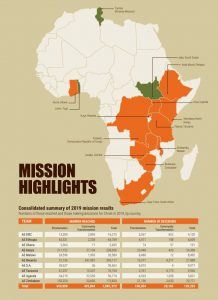
During 2019, we were able to update our AE theological and evangelism training materials, which are used across Africa. Of great importance, is the fact that we were able to translate these materials into French. This will enable greater reach to the Francophone countries of West and North Africa, many of which are currently dominated by traditional animistic beliefs and Islam.
In addition, during 2019, we were able to launch a new office in Zambia. Zambia, together with our Malawi and Zimbabwe offices, aims to reach over a million people in our “Southern outreach” region over the next three years.
Another highlight of 2019, was the triannual AE International Council, which met in Kigali, Rwanda. The outcome of the Council was a renewed focus on our vision “to be the most faithful and effective catalyst for holistic urban evangelism in Africa”, with a particular emphasis on assisting churches in the discipleship of new believers.
Throughout 2019, we have endeavoured to share the Gospel in both word and deed, and our social action programs have continued to empower communities to address poverty via self-help groups, vocational training and the promotion of health.
This has all been made possible by the partnership of faithful supporters like you, as well as the tireless work of our teams in Africa. Michael Cassidy, who founded African Enterprise 58 years ago, recently expressed his gratitude to AE Australia, and acknowledged in particular, the distinguished leadership of our Australian Board. In reflecting on 2019, we would thus like to thank AE Australia’s outgoing chair, Mr Steven Mackay.
We are also delighted to announce our new chair of the Board, Mr David Ralph. Mr Ralph has been a member of the Board of AE Australia for the past year, where he has offered his expertise on the Board’s finance committee, as well as being actively involved with our supporters. Mr Ralph has many years of both domestic and international business experience, and is currently CEO of a Christian social enterprise organisation. Married to Margaret, with three adult children, David is actively engaged in leadership roles in his local church.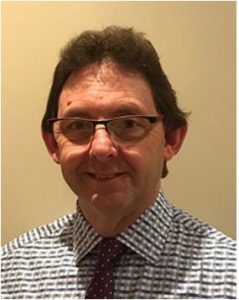
David would like to share a few introductory words:
“The AE community is a warm and welcoming one, demonstrating active support for mission in Africa. I would like to thank you for your welcome as I look forward to working with my fellow Australia directors and with the International Board and National teams to further the great commission in Africa. Supporting home-based evangelism and Covid-19 responses across 12 countries in Africa provides a practical demonstration of God’s love. Together with my wife Margaret, I am looking forward to serving our Lord through the ministry of AE.”
In the face of the Covid-19 pandemic, 2020 has already proven challenging for all of us. As David mentioned, our focus for this year has shifted primarily to that of Home based evangelism, as well as social action responses to the effects of the pandemic. Africa is particularly vulnerable to the pandemic’s devastating health, economic and political consequences, and our social action responses have been tailored to the individual countries in which we work. These include food aid for vulnerable persons, COVID-19 education, manufacturing and distribution of reusable face masks and the distribution of hygiene and sanitation products. Furthermore, our Home Based Evangelism model is evidence that the greatest message of all, the Gospel of Christ, will not be silenced. African Enterprise remains committed to faithful, holistic evangelism for the continent of Africa.
You can read our Annual Report here.
Passionate about caring for People with Albinism
Malcolm & Pam Humphreys
Supporters of AE: 30 years
We have been supporters of African Enterprise for over 30 years and have been delighted and amazed at the size of the harvest as the gospel has been proclaimed by AE outreaches to millions of people all over Africa.
Over the years, as we have travelled through the continent, we have seen many examples of Christian churches sharing God’s love in their communities with an enthusiasm that many western nations would covet. We have also been saddened to see so many people in desperate need including a group of people with albinism (PWA). Albino people are to some extent a forgotten people in the cities and rural communities in Africa.
Albinism is caused by low amounts of melanin, a protein which provides the skin pigmentation required to protect against the harmful effects of sunlight’s UV rays. Africa has the highest incidence of albinism in the world. Because of their white skin, often scarred by skin cancers and with a pink eye colour, they stand out in communities and their difference with others often leave them to be feared, marginalized, even persecuted and without job opportunities.
As a family we had been providing some support to albino people elsewhere in Africa and felt led to extend that help to Zimbabwe. It seemed logical to ask AE in Australia if we could visit the Harare AE office to discuss how we hoped to start helping PWA and other needy people there. We had immediate encouragement from the Australian CEO at the time, Peter Cheel, to do so and some weeks later we met with Guide Makore, Zimbabwe team leader in Harare. With Guide’s enthusiastic support his wife Forgiveness committed to joining our efforts to reach out PWA and other needy people.
The programs aim is firstly, to bring self-respect to albino people and the good news that God looks at their hearts with love. Also to educate communities to help take away the stigma of albinism. Secondly to provide and encourage the use of sunscreens, hats and clothing that protects against the sun. Thirdly to develop and encourage self-help projects, such as chicken egg production or breeding, peanut butter making and planting cereal for crops and fruit trees for gardens.
We are very grateful to AE for allowing us to call on Guide services despite his commitment to AE Zimbabwe and of course his lovely wife Forgiveness who is really the glue in organizing and implementing our support programs in Zimbabwe.
Above all we are grateful for God’s blessing on these efforts. When we started the program we were aware of only 1 person with albinism in Harare. We now commonly have 200 people with albinism and their families attending outreaches in Harare.
Thanks to the bush telegraph we also now provide help and support to a similar number in Chitungwiza, Gutu and as far afield as Binga.
God loves people with albinism and so should we.
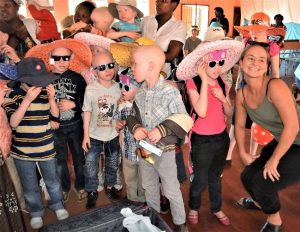
Passionate about caring for Africa.
Arthur Adeney
Supporter of AE: 30 years
Arthur was born in Burundi Africa where his parents were mission workers with the Church Mission Society for 40 years. He attended boarding school in Uganda and Nairobi before finishing his schooling career in London. After completing his medical degree, Arthur and his wife Jan spent 12 years in Tanzania with Crosslinks Mission Society. They moved to Australia after their time in Tanzania but have continued to support the work that AE does for the past 30 years. Arthur is passionate about caring for Africa, not just because he grew up there but also because he has seen first handed what God’s work has done in Africa.
You can read more about Arthur in the July edition of African Harvest magazine.
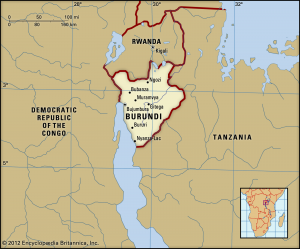 Burundi map source: https://www.britannica.com/place/Burundi
Burundi hut source: https://www.pinterest.com.au/pin/485755509778955110/
Burundi map source: https://www.britannica.com/place/Burundi
Burundi hut source: https://www.pinterest.com.au/pin/485755509778955110/



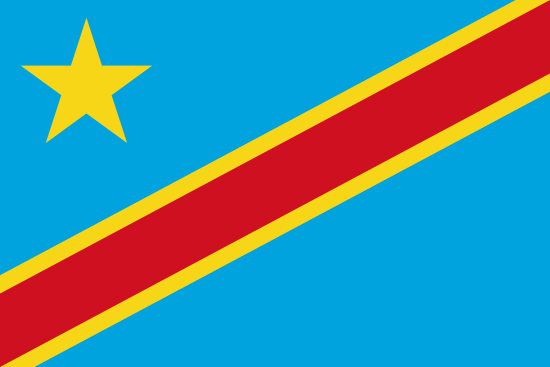
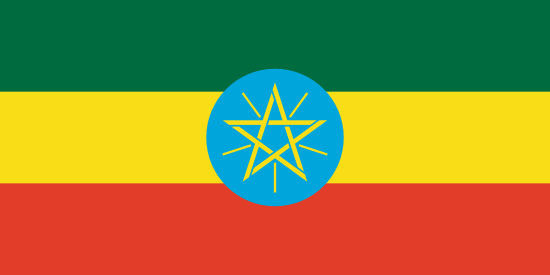
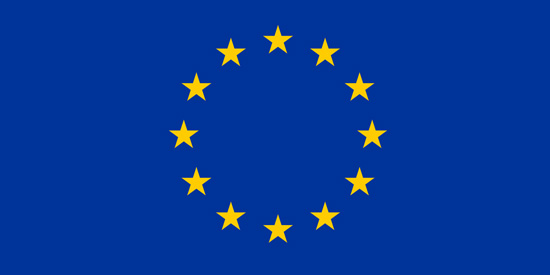
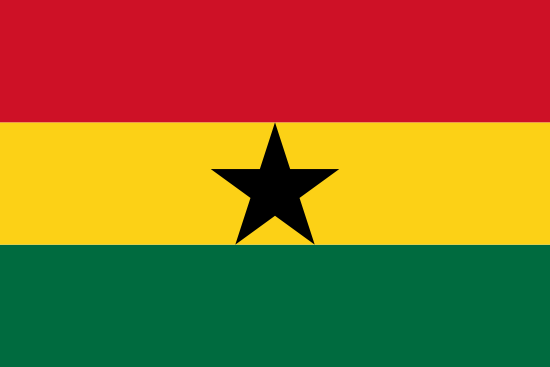

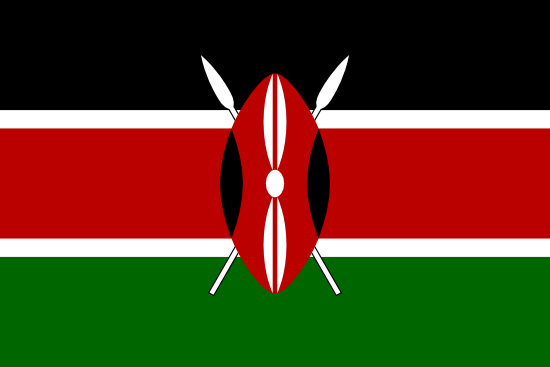
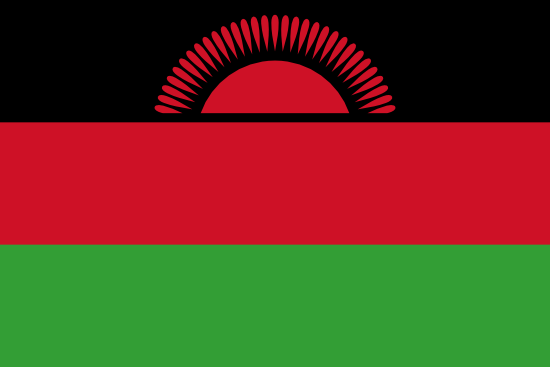
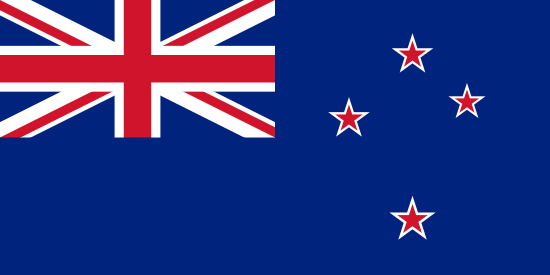
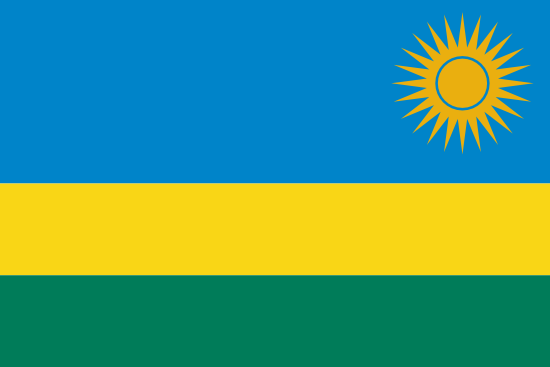
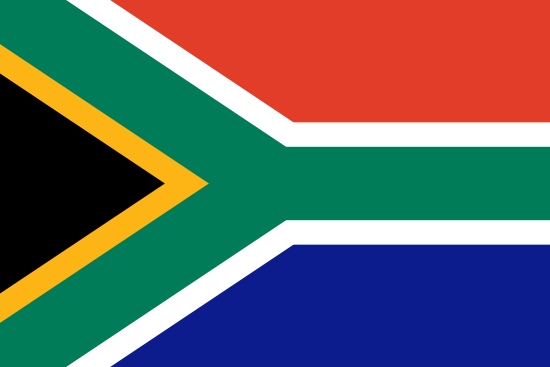
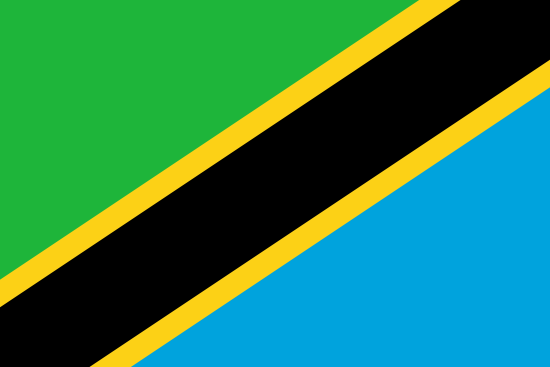
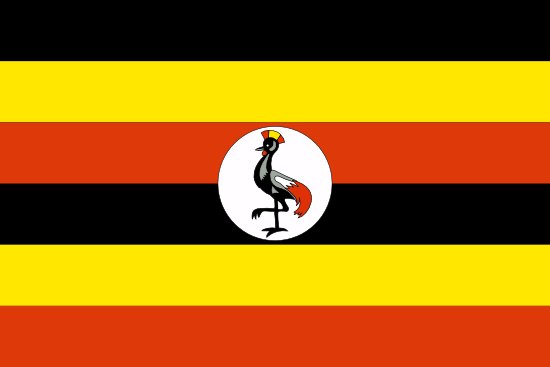
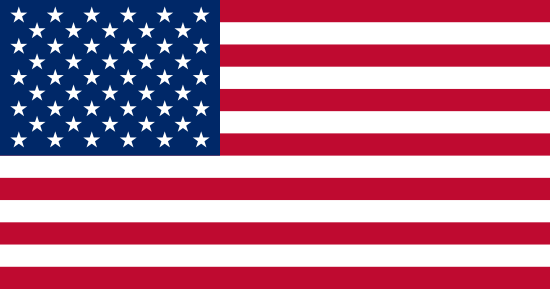
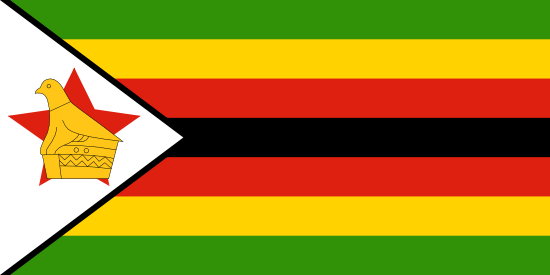

 experience as a CMS missionary in Tanzania. Back in a Sydney parish again I met some people who were keen on this new kind of African mission which had begun to have a base in Australia. An old friend, Dr Paul White, was the Australian Chairman and I was soon invited to join AE’s local board. In due course this new connection took me to Africa, to AE’s people-on-the-ground and eventually to my Chairmanship of their International Board. Over the years which this involved I learned to cherish various aspects of AE’s ministry
experience as a CMS missionary in Tanzania. Back in a Sydney parish again I met some people who were keen on this new kind of African mission which had begun to have a base in Australia. An old friend, Dr Paul White, was the Australian Chairman and I was soon invited to join AE’s local board. In due course this new connection took me to Africa, to AE’s people-on-the-ground and eventually to my Chairmanship of their International Board. Over the years which this involved I learned to cherish various aspects of AE’s ministry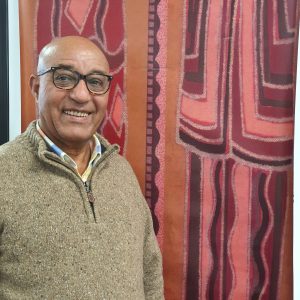



 Burundi map source: https://www.britannica.com/place/Burundi
Burundi hut source: https://www.pinterest.com.au/pin/485755509778955110/
Burundi map source: https://www.britannica.com/place/Burundi
Burundi hut source: https://www.pinterest.com.au/pin/485755509778955110/